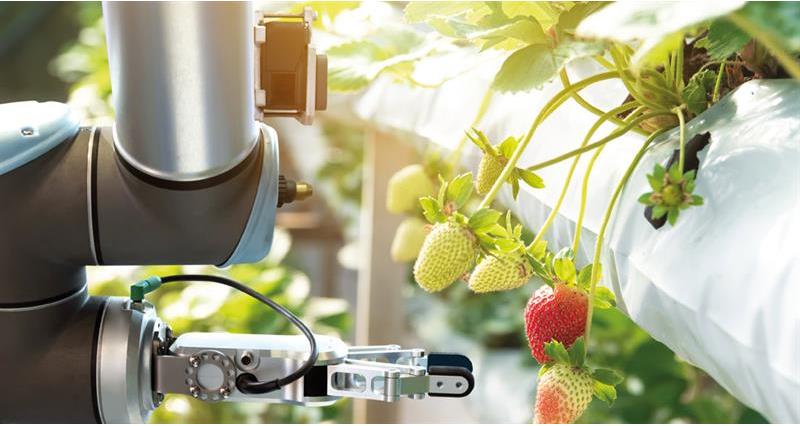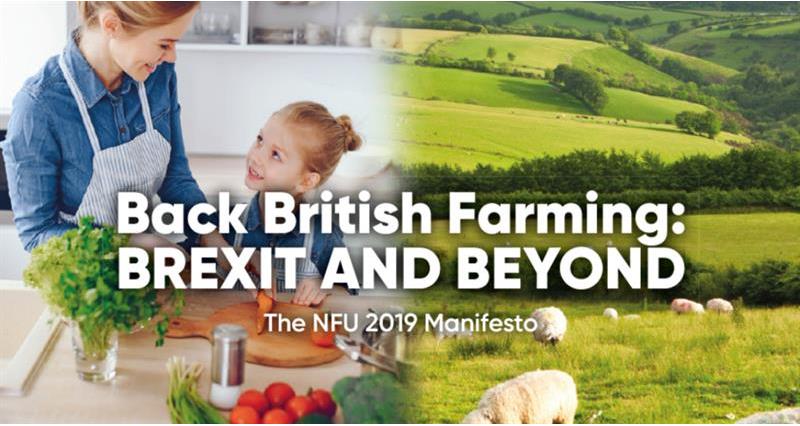Support the NFU’s Net Zero ambition
Achieving our ambition of
British farming being Net Zero in greenhouse gases by 2040 is an ambitious challenge in both timescale and technology, but it is the right thing for us to do morally. It also offers huge opportunities for the sector’s competitiveness and environmental profile. It requires a transformation of farm businesses by improving every farm’s productive efficiency (producing more but with fewer inputs), managing farmland to retain and capture more atmospheric CO2 in our soils, woods, hedges and trees, and combining renewable energy with novel ways of carbon capture and storage. These measures all require farms to invest and make significant management changes, but it also requires government to create the climate in which these steps are the best business decision – with appropriate research and development, advice, grants and fiscal incentives.
A commitment to continue with the 25-year TB eradication strategy in England
Bovine TB is a pernicious and costly disease, with 32,925 cattle slaughtered in 2018 in England as a result. Working with government, farmers are trying everything to control it, including improving biosecurity measures as well as culling of badgers. This “joint toolbox” strategy is proven to be working, with peer-reviewed, scientific evidence showing a 66% reduction in new TB breakdowns in cattle in Gloucestershire and a 37% reduction in Somerset, areas where the cull has been going for more than four years. We call on the next government to commit to Defra’s TB eradication strategy for England, including continuing to roll out culling to help prevent the spread of this terrible disease and developing and testing a cost-effective cattle vaccine.
Ensure Britain’s world-leading animal welfare standards are recognised and promoted in line with farm businesses
UK farming offers consumers fantastic choice and worldleading standards of animal welfare. Across the farmed species, consumers can rely on Red Tractor Farm Assurance to deliver a robust welfare baseline compared to many imported products. Future welfare policy must be based on science and evidence, focusing on meaningful welfare outcomes for farmed animals and supported by trade policy.
Livestock transport regulation must remain broadly in line with current EU requirements in order to safeguard domestic transport standards that recognise the structure and diverse nature of the UK livestock sectors. The NFU has developed a live export assurance scheme standard for slaughter and further feeding as this remains an important trade for farmers. If adopted this new scheme would further ensure an open and transparent system that seeks to ensure our welfare values are protected through the chain.
A policy framework that aids development of sustainable plant health solutions
Many UK farmers and growers, and most food production needs continued access to a range of plant protection products. We want government to work with industry to develop a sustainable regulatory framework for pesticide use and approvals post EU exit, balancing the needs of UK farmers and growers with interests of consumers and the environment. Fundamental to this will be robust scientific evidence that is based on a risk-based approach to managing environmental impacts. This framework should use research and development that delivers safer, more effective and lower risk pesticides in the context of Integrated Pest Management (IPM) activity and other approaches.
Read about the other key policy challenges:
- Navigating Brexit for British farming
- Developing a framework for a more competitive and sustainable farming sector
- Building a thriving countryside and rural communities
- Securing a long-term government food strategy
NFU members: Here's how you can get involved
Our Member Toolkit has a host of useful information, links and tools which can help you, as an NFU member, lobby your local MP post-election on the issues that matter to you and your farming business.? ?Get the vital information on how to lobby your MP here (members only, you will need to login, click here to get a new password).

